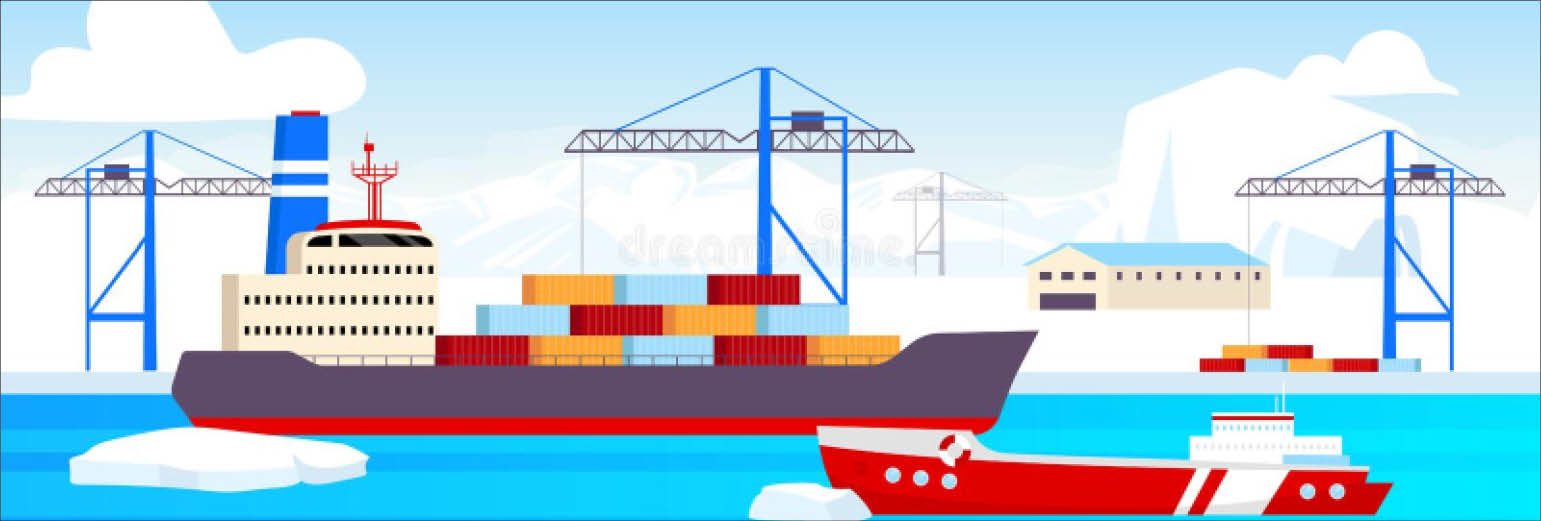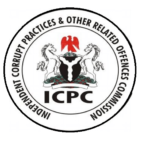The creation of the Ministry of Marine and Blue Economy by President Bola Tinubu has been lauded by many stakeholders and experts, as it is expected to shift government focus away from the oil sector to the Maritime industry.
Nigeria, located on the Gulf of Guinea, is blessed with vast coastal resources that remain largely untapped. The country’s maritime industry has historically focused on the oil and gas sector, but with the establishment of a dedicated ministry for the blue economy, diversification is underway.
The ocean economy supports 90% of global trade and provides millions of jobs. It includes shipping, tourism and offshore energy valued at $24 trillion.
Marine and Blue Economy is the sustainable use of ocean resources for economic growth to improve livelihoods, and create jobs while preserving the health of marine and coastal ecosystems.
Experts argued that the new ministry has the capacity to generate more than $1.5 trillion per year globally and provide over 30 million jobs and supply a vital source of protein to over three billion people.
If Nigeria can actively key into these abundant opportunities, it will go a long way in tackling the country’s debt profile, providing the necessary resources for development as well as addressing the galloping unemployment.
President Tinubu has demonstrated his resolve to revive the economy. Notable policies as fuel subsidy removal and the floating of the currency exchange rate have undoubtedly created a fresh momentum.
These nascent policies, part of which metamorphosed in the establishment of the Ministry of Marine & Blue Economy, have impacted port operations in more than one way and the Nigerian Ports Authority (NPA) has since joined hands with the supervising Minister, Chief Adegboyega Oyetola, in pursuit of his mandate for the overall benefit of the maritime industry.
But before the new administration came onboard, the NPA had already positioned itself to support the Bola Tinubu administration.
Setting and meeting revenue target
From January 2023, the Bello Koko-led transformation, re-engineering and repositioning of the NPA triggered fundamental changes that are afoot at the apex maritime organization today.
It is noteworthy that within the first half of 2023, the NPA has generated a total revenue of N191.43 billion from its operations.
During the same period, it remitted N55.712 billion to the Consolidated Revenue Fund (CRF) of the Federation.
These disclosures were contained in a half-year 2023 performance report released by the NPA Managing Director and Chief Executive Officer, Mohammed Bello Koko.
Mr Bello Koko while providing insight on the report said given the existential economic headwinds, both at the micro and macro levels, these operational statistics for the first six months were reassuring, adding that they catalyzed the commendable remittances to the Consolidated Revenue Fund (CRF) of the Federal Government thus far.
According to him: “Viewed within the context of current global economic upheavals which have affected trade volumes in all climes, our current growth trajectory is encouraging and gives us confidence to project a revenue growth of over 500 billion with concomitant increase in remittance to CRF by end-of-year 2023, given that shipping activities peak around the second half of the year.
“The smart policy thrust of the new administration which is already throwing up new vistas of growth further lends credence to the feasibility of our projections and gives fillip to our organizational initiatives.”
He further added, “The operationalization of Lekki Deep Seaport, expected restoration of the service boat management contract, digitalisation and intensified tightening of collections mechanisms buoys our confidence at meeting and indeed exceeding the revenue projections.
“The Authority has completed operations on a total number of one thousand eight hundred and fifty-one (1851) vessels for the 1st half of 2023 with a combined Gross Registered Tonnage (GRT) of fifty-seven million, eight hundred and seventy thousand and eighty-three (57,870,083). Cargo throughput for the period under review stood at 33,895,784 metric tonnes, whilst container traffic was 707,985 TEUs (Twenty-foot Equivalent Units).
A key indicator of port efficiency, which is the average turn-around-time (TAT) of vessels, stood at 5.16days. “This is an improvement and we have put measures in place to surpass in the second half of 2023.”
Truck turn-around cycle
Anyone who has been to Apapa in recent years will testify to the menace of truckers and the resulting gridlock on port access roads. Today, there is significant reduction in truck turn-around time due to successful monitoring of the E-Call Up System.
To minimize breakdown of trucks on port access roads, about 3,000 trucks have been inspected, certified and issued stickers to ensure safety and compliance with ISO certification requirements and Minimum Safety Standards (MSS). This led to an impressive 65 per cent reduction in the number of accidents recorded within the port premises.
The NPA, following Koko’s directive, has enforced full compliance of trucks to the E-Call Up regime and Minimum Safety Standard resulting in significant reduction in the traffic gridlock along the main Port corridor and the internal access roads through enforcements, proper batching, continuous access control mechanisms and movement of cargo via barge operations.
To save the country the much-needed foreign exchange, Koko has ensured that complete dry-docking of some tug boats is done locally, and this has increased the Authority’s fleet of vessels.
To ensure adequate security at the ports, the NPA has procured and deployed six Security Patrol Boats (SPBs) to all Pilotage Districts to address incessant attacks of vessels along the channels and at Ports’ waterfronts.
In the period under review, the NPA ensured standardization of Operational Procedures for Different Activities, created Forcados Signal Station to enable the Port capture the movement of more Service Boats and completed a bathymetric Survey for the dredging of Escravos Channels.
With vital tools and processes necessary for effective port operation lacking, what the NPA has achieved in the last 10 months is unprecedented. They include; the survey and Mapping of the FairWay Buoy up to Warri-Sapele-Koko Ports to the prescribed standards of the UKHO Charts, increase Container holding capacity at Rivers Port arising from conversion of unused space within PTOL Terminal into stacking area, provision of 24 motor cycles deployed to aid effective monitoring of Truck E-Call Up operation at Apapa/TCIPC/Ijora axis to ease free flow of traffic, signing of Memorandum of Understanding (MoU) with the National Bureau of Statistics (NBS) for data digitization and exchange for effective integration of Ports statistics with National Database and upgrading of Website and Daily Shipping Position Portal.
Escravos breakwaters, Concession Review
For several years the Escravos breakwaters were left to rot. However, things are turning around for good following the completion of consultancy services for the shore protection and rehabilitation of the Escravos breakwaters by Royal Haskoning. The contract for rehabilitation will soon be awarded, it was gathered.
The NPA has also completed review of expired concessions while reviewing all available funding options in order to commence immediate reconstruction of: TinCan Island Port Complex, Berth 4-14 in Apapa Port Complex, Berth 2 in Onne, Terminal C in Warri and Warri Jetties.
Also, the synergistic partnerships at instituting transparency harbingered by the Mohammed Koko – led Management recently gained international commendation as Nigerian Ports Authority won the, “Outstanding Achievement in Collective Action Award,” of the Switzerland-based Basel Institute.
Technology and Innovation
With technology being the linchpin of port efficiency, the Authority’s sustained updating of ports systems automation as well as the ongoing collaboration with the IMO for the development of the Port Community System (PCS) signposts the current management team’s seriousness to advance Nigeria’s trade fortunes.
The PCS which lays the groundwork for the National Single Window (NSW- the global benchmark of port efficiency), is a sector-specific automated system that eases information exchange between all parties that have activities related to the seaports, the NPA has been at the forefront of measurable actions steps necessary to operationalize the PCS.
Although the PCS by its operational dynamics requires multi-agency actions, which have been time consuming, the NPA as Nigeria’s foremost trade facilitation platform has through advocacy and collaborations fast tracked the process and as at today completed the second phase of the consultancy under the technical guidance of the International Maritime Organization (IMO).
To enthrone transparency and eliminate opacity, the authority has also completed the automation of port-ship reception and billing payment with the Revenue invoicing and management system (RIMS), Deployment of Electronic manifest and Ship Entry Notice (ESEN), deployed electronic Traffic Management System (e-Call Up), currently operates Oracle Financials and Oracle HR and is on track for the procurement of software for harbour automation and is implementing an Authority-wide equipping and strengthening of Radio Signal Stations.
To assure Domain Awareness Capability to enable the Authority guide and provide safety information to vessels within its channels and ports approaches in line with the Safety of Lives at Sea (SOLAS) convention, the current management partnered with the NLNG Ship Management Ltd (NSML) for the deployment of Vessel Traffic Service which is at its conclusive stage.
Equipment & Infrastructure
Port sustainability is dependent on quality infrastructure and equipment. Whilst awaiting the necessary approvals for the funding of the reconstruction of the aged Tin Can Island Ports Complex and rehabilitation of challenged aspects of all Port locations, the current Management team has in the period under review undertaken commendable steps in this direction as follows:
• Acquisition of first-of-its-kind in Africa marine crafts such as the recently commissioned two units of Azimuth Stern Drive (ASD) 8213 model 80 Ton Bollard Pull Tugboats to enable the berthing of very large vessels of 300 metres LOA and above.
• Equipping and Operationalization of state-of-the-art Control Towers for Lagos and Tin can Island Port Complexes.
• Procurement and deployment of Security Patrol Boats (SPBs) across all Port locations leading to enhanced channel security and address incessant attacks of vessels along the channels and at ports’ waterfronts which has resulted in unprecedented cargo traffic in the Eastern Ports especially Onne Port Complex.
• Procurement and installation of navigational Aids and Buoys for Warri and Calabar Pilotage Districts, for proper channel marking and route mapping.
• Completion of the Road Network for the integration of Berth 9,10, &11 at Federal Ocean Terminal, Onne Port.
Diversification of Revenue Sources
In a move that is indicative of the readiness and capacity to fit into the reinvigorated capacity optimization drive of the new Ministry of Marine and Blue Economy under the visionary ministerial direction of His Excellency Adegboyega Oyetola, and in a bid to surpass the current revenue performance, Mohammed Bello Koko and his team are already looking beyond sole dependence on revenue from core port operations and have already put modalities in place to create jobs and add value to the national economy from the following alternative sources of revenue through Public Private Partnerships; Ports Independent Power Production, Bunkering Stations, Fallow Lands for Logistics/Real Estate, Fresh Water Provision, Ship Repairs and Maintenance and Tourism and Hospitality.
Gleaned from the foregoing, it is evident that the Nigerian Ports Authority has been placed on sound footing to guarantee its growth, competitiveness, and future readiness to maximize the opportunities inherent in the African Continental Free Trade Area (AfCFTA) Agreement.
2024 Goals
As a precursor to achieving its goals for 2024, the NPA is sourcing low-cost funds to fully modernize its existing ports to accommodate modern cargo handling equipment, reduce vessel turn-around time, improve the berth occupancy factor, and increase competitiveness as almost every KPI in the Performance Bond it signed is hinged on port performance and improving port competitiveness index.
The MD of the NPA, Bello Koko noted thus: “Our effort to fully automate port operations is now coming to fruition. In the first quarter of 2024, we will complete the launch of an upgraded version of the Revenue Invoice Management System, RIMS 2.0, to address the shortfalls of the earlier version. The Port Community System, which is supported by the International Maritime Organization will also go live this year to streamline port operations, improve data exchange and Port efficiency.
“The effort to deploy VTS and harbour automation that are necessary to ensure security and safe navigation has reached an advanced stage and will be deployed this year. Also in our bid to be scientific in our approach to port development, the National Ports Master plan will come into effect by June this year to guide our investment and expansion plans.”
It was therefore unsurprising that sequel to signing the Presidential and Ministerial Performance Bond, the Koko-led management organized a three-day retreat during which the Executive Management Team were taken through the fundamentals of the goals and objectives as stated in the Performance Bond in order to ensure seamless achievement. The scorecards will be revealed February 2024.




